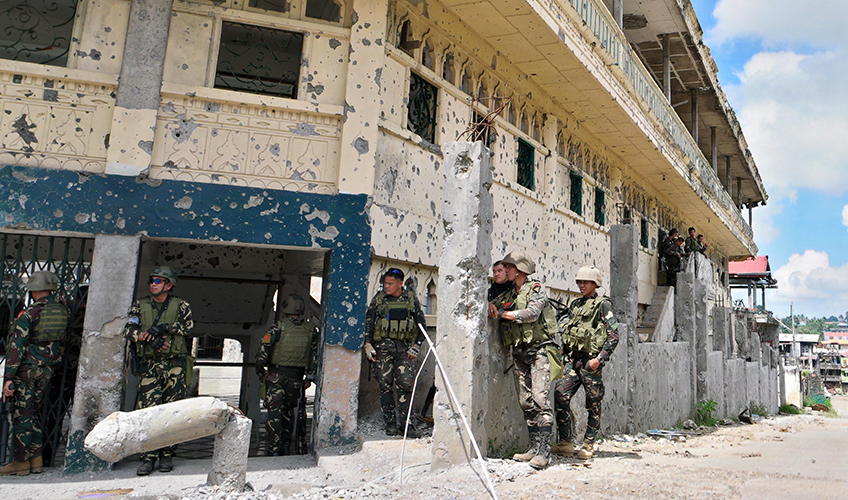The Philippines' growing threat of violent extremism
A new report by International Alert shows an explosion of violence in the year 2016 in the Autonomous Region in Muslim Mindanao (ARMM) in the Philippines. This came amid the holding of the May 2016 national and local elections and the coming to power of a new administration with an aggressive approach to the country’s drug problem.

The report, titled ‘Guns, drugs and extremism: Bangsamoro’s new wars‘, also shows the surge of violent extremism over the year 2016. Here, Harriet Lamb, CEO of International Alert, reflects on the report’s findings and recommendations.
What a difference a year makes. In 2016, promises by the new government to pursue peace talks with communist and Moro rebels raised hopes of finally settling two long-simmering rebellions. A year later, President Duterte has ended the peace talks with the National Democratic Front. Meanwhile, the peace agreement with the Moro Islamic Liberation Front hangs by a thread as a new bill establishing the Bangsamoro region continues to be ignored by Congress.
Since then, we have seen a months-long military campaign beginning in May 2017 to reclaim the Islamic City of Marawi, which fell to the control of the Dawlah Islamiya, a grouping of armed groups that had pledged allegiance to ISIS. The human cost of this conflict has been tremendous, with over 300,000 injured, killed or displaced.
Yet even before the Marawi siege happened, the growing strength of the Maute Group, which is at the core of Dawlah Islamiya, had been noted by our monitoring system Conflict Alert. The 2016 report pointed out that judging by the number of conflict deaths (86) from only six incidents involving the Maute Group that were monitored at that time, it demonstrated it had the “resources and capacity to launch large-scale and deadly attacks”. Governments and societies need to get better at taking early action in response to such early warnings.
The siege has ended but it has recast Muslim Mindanao’s conflict terrain. Urban areas are now as much a target for extremist groups as rural areas. Perhaps even more.
The release of this new Conflict Alert report is well-timed. Covering 2011 to 2016, the report highlights the growing threat of violent extremism, not only from the Maute Group, but also other groups that had pledged allegiance to ISIS, namely, the Bangsamoro Islamic Freedom Fighters and the Abu Sayyaf Group. It also documents the maelstrom created by the government’s drive against illegal drugs, the increase in the number of violent crimes against women, and the deadly impact of clan feuds. It further highlights the sad fact that in any conflict, it is the civilians who bear its brunt.
The report is a valuable resource for all those in peacebuilding, whether in government, nongovernment organizations or the development community. By focusing on the causes of conflict in Muslim Mindanao, and their interconnections, we can better understand conflict dynamics in the region, and hopefully, enhance planning and programming in response.
The new times, and the shifting nature of conflicts, underscore the need for conflict monitoring to track when and where conflicts are happening or have happened, and to document their impact, particularly on civilians. The data is needed to anticipate conflicts better, and to plan how to respond to them, especially to consider the impact on communities.
This report also serves as further proof for the need to invest and engage in peacebuilding. Data from the Institute of Economics and Peace in 2016 showed that global spending on peacebuilding was less than 0.5% of spending on the military. It also demonstrated that every dollar invested in peacebuilding reduces the cost of conflict by sixteen dollars. We also know that peacebuilding works, as demonstrated by a myriad of examples included in a recent International Alert report called “Redressing the balance”.
It is obvious that we need more investment in peacebuilding. But more importantly, this investment needs to be backed and informed by data, as our latest Conflict Alert demonstrates.
The report ‘Guns, drugs and extremism: Bangsamoro’s new wars’ is available to download here.




